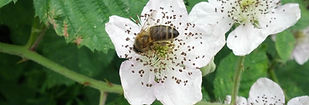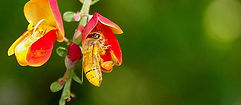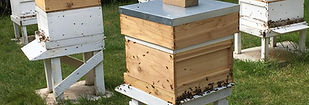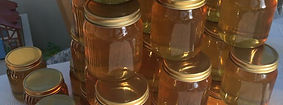





Norwich & District Beekeepers Association
Helping Beekeepers and Honey Bees for over 15 Years

Think You Have a Swarm?
Swarming bees
Is it a lovely sunny day after a spell of wet, windy weather, between late March and mid July? You may now be looking at a mass of honey bees swirling in your garden and finally settling on a tree branch or a large bush. Don’t panic, this is the honey bees’ natural way of replicating the number of colonies in the area and they will have filled their stomachs with honey before leaving on their new adventure; they will generally be at their most placid, waiting for the scout bees to find a new home and they will be huddling around their precious queen, protecting her.
Not in my garden, you say. No problem, there will often be beekeepers in your area who will be willing to collect your swarm and house them somewhere safe. If the swarm is fairly accessible, most beekeepers won’t charge to take them away and will come to your house as soon as possible. You may have to wait for them to leave work first. The link below shows a map of beekeepers in Norfolk who have volunteered to collect swarms; you just need to add your postcode, Click Here
However, before you pick up the phone, please try to ensure that they are honey bees, not wasps, bumblebees or solitary bees, as beekeepers are not the correct contact for these. The British Beekeepers’ Association (BBKA) has a very informative page to help you decide what nest/group of flying insects you have discovered, together with useful data, Click Here
The BBKA is the parent group of all clubs in England and as such has a wealth of information on its website. The following link is particularly instructive and shows some lovely pictures of the different variety of places chosen by honey bees to rest, whilst awaiting a decision on their new home, Click Here.
If the nest is ensconced in a listed building or in the fabric of any building, then you will need more specialised help. The UKBR may be your next port of call. This is quoted from their website:
‘The UKBR is a group for those that both participate in the ethical removal of honey bee colonies and for members of the public requiring the assistance of a bee remover to extract an established colony. The UKBR is committed to improving methods and techniques, through research and development, to help improve bee health and welfare, during and following the removal and relocation of the bee colony.’
The link below will connect you with a local member to help you.
https://form.jotform.com/223503671911350
We hope that this page will put your mind at rest and allow you to find help methodically.


